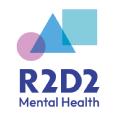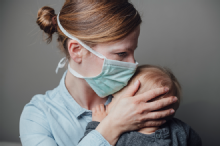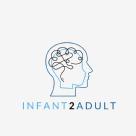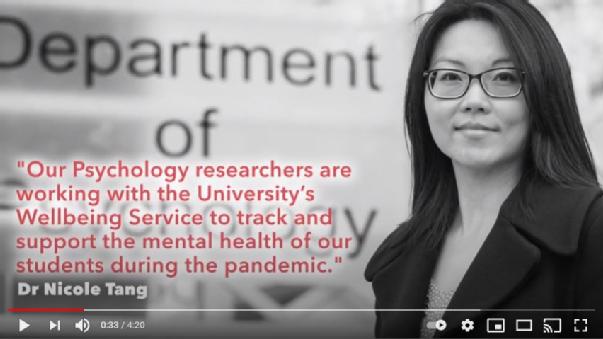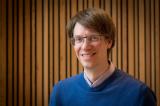Lifespan Health and Wellbeing Group (LHWG)
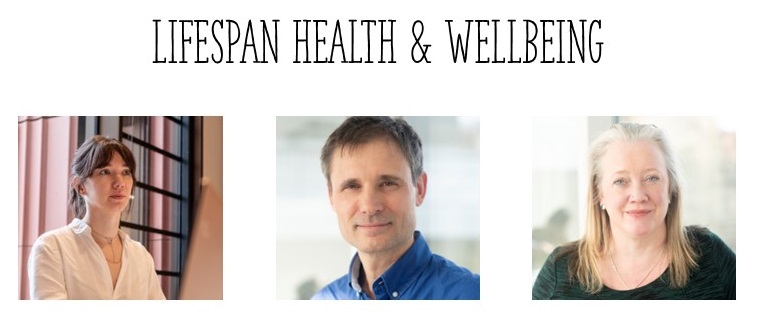
Members of this group study health and wellbeing across the lifespan in order to develop a better understanding of the processes and mechanisms involved.
The group includes researchers in longitudinal epidemiology and experimental psychology with common interests in the factors that determine and/or the mechanisms that underlie healthy living, development, and ageing.
Emphasis is placed, particularly, on translational research or how basic findings can be translated into clinical practice and influence health policy.
With their unique expertise and skill sets, members provide the foundation for developing a distinctive, world-leading centre for research into lifespan health and wellbeing. The Group’s affiliates are interested in combining longitudinal, epidemiological approaches to test experimental findings or theories in the real world.
ONGOING PROJECTS
Read about Professor Dieter Wolke's ERC-AdG/UKRI grant project here:
This project was selected by the ERC, funded by UKRI |
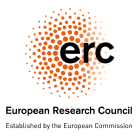 |
MORE RESEARCH
|
|||
|
Sabrina Twilhaar has a Horizon MSCA grant to investigate that Preterm birth rates are rising. Although survival rates have increased, long-term outcomes have not improved over the last decades. RIPTIDE aims to provide insight in amenable factors that promote resilience in childhood and adolescence. |
BB2UPLink opens in a new windowLink opens in a new windowThe purpose of the Big Baby Trial is to find out if starting labour earlier than usual, at 38 weeks, makes it less likely that shoulder dystocia will happen in women whose babies appear to be bigger than expected. |
|
|
NIHR - Surviving CryingCluster Randomised Controlled Trial of a Service to Support the Mental Health and Coping of Parents with Excessively Crying Infants. EPICure StudiesLink opens in a new windowLink opens in a new windowThe MRC funded EPICure studies are longitudinal cohort studies of babies born at extremely low gestational ages across the country in 1995 and in 2006. To date, follow up for the cohort has been through to 19 years and to 3 years for the 2006 cohort |
|
MoBaEarlyEdThe Norwegian Mother, Father and Child Cohort Study (MoBa) is a study of the causes of disease among mothers and children. MoBa began to recruit pregnant women in 1999. Fathers were also invited. In 2008, the goal of more than 100 000 pregnancies was reached. Biological material and questionnaire data have been collected since the 17th week of pregnancy which makes the study unique. IMPROVE PretermMarina Mendonça is part of the IMPROVE Preterm consortium exploring IMPROVing lifElong health and development for children and adults born very PRETERM – observational studies to enhance randomised trials for comparative effectiveness research |
|
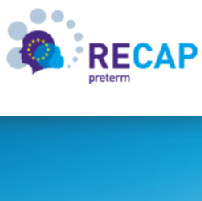 Link opens in a new window Link opens in a new window |
Research on European Children and Adults born Preterm Although very preterm or very low weight births constitute fewer than 2% of all births across Europe, they account for up to half of perinatal and infant deaths, children with impairments and disabilities and more than a third of the health and educational budgets for children. In addition to the increased risk for physical impairments, babies born the earliest and the smallest are also at higher risks of psychological and social problems than infants born at term. The RECAP preterm Project aims to understand the causes of these difficulties faced by very preterm children and adults in order improve the health, development and quality of life of these individuals. The study was funded with Euro 9.7 million by the EU Horizon 2020. We constructed a worldwide unique data platform. |
||
The ConnecteDNA project (Dr Fiona MacCallum)
ARCHIVE OF OLDER RESEARCH PROJECTS |
|||
|
Profiling our research impactLink opens in a new window |
RESEARCH LABS/TEAMS
The Warwick Lifecourse and Neonatal Group

Warwick Lifecourse and Neonatal Group (WarwickLNG) MEET THE TEAM
|
The Warwick Sleep and Pain Laboratory is a brand new research facility located at the Department of Psychology. The lab is home to a group of researchers interested in the science and clinical aspects of sleep and pain, and more broadly,the general association between sleep and health. Our research group has expertise in clinical psychology, health psychology, and nursing. The type of research we do is multidisciplinary in nature and we apply both qualitative and quantitative research methodologies.
The Warwick Wellbeing, Culture, and Personality Research Group
The research group is committed to exploring the complex relationships between personality traits, cultural influences, and overall wellbeing. Through interdisciplinary collaboration and innovative methodologies, we investigate various dimensions of wellbeing, including life satisfaction, resilience, and psychological flourishing. By examining how personality traits and different cultural contexts foster or hinder wellbeing, we aim to uncover strategies for promoting mental health and resilience across diverse populations and organisational settings.
LHWG MEMBERS
| Dr Erkan Alkan (Research Fellow) | |
| Dr Thomas Bilterys (EUTOPIA SIF Fellow) | Dr Andres Carnero (Research Fellow) |
| Kate Evans (Research Assistant) | Dr Julie Eyden (Assistant Professor) |
| Dr Claudie Fox (Associate Professor) | Dr John Galvin (Assistant Professor) |
| Professor Robin Goodwin | Dr Gemma Gray (Associate Professor) |
| Dr Luke Hodson (Assistant Professor) | Dr Victoria Hotchin (Research Fellow) |
| Dr Jagjeet Jutley-Nelson (Associate Professor) | Dr Gitit Kadar-Satat (Assistant Professor) |
| Dr Kirsty Lee (Assistant Professor) | Dr Fiona MacCallum (Reader) |
| Dr Marina Mendonça (Assistant Professor) | Dr Adrian von Műhlenen (Reader) |
| Dr Stefano Perna (Research Fellow) | Dr Jesse Preston (Reader) |
| Professor Anu Realo | Dr Katy Stokes (Research Fellow) |
| Professor Nicole Tang (LHW Group Head) | Professor James Tresilian |
| Dr Sabrina Twilhaar (Marie Curie Research Fellow) | Professor Dieter Wolke |
| Dr Yanlin Zhou (Research Fellow) | Professor Elizabeth Maylor (Professor Emerita) |
Honorary and Visiting Research Fellows
| Dr Ayten Bilgin (Honorary Research Fellow) |
| Dr Ahuti Das Friebel (Honorary Research Fellow) |
| Dr Robert Eves (Honorary Research Fellow) |
| Professor Sakari Lemola (Honorary Reader) |
| Dr Xiujun Li (Visiting Research Fellow) |
| Dr Yanyan Ni (Honorary Research Fellow) |
| Professor Juliane Spiegler (Honorary Research Fellow) |
PhD Students
| Duaa Ashoor | Monthira Boonthip | |
| Yuyao Cheng | Katie Cunneen | Serkan Deveci |
| Raphaela Thomas Fostier | Jenna Gillett | Elif Gönen |
| Nikki Heinze | Ellie Horton | Tarandeep Kang |
| Dr Nicolas King | Chunxi Liang | Zinan Lin |
| Kehan MeiLink opens in a new window | Michaela Pawley | Emily Peters |
| Rebecca Plimmer | Agne Raneberg | Marie Stracke |
| Yuxuan SuLink opens in a new window | Peter To | Lauren Wilkinson |
| Miranda Wong | Elsie Wu | Arij YehyaLink opens in a new window |
| Xuan Zhao | Zilan Zou |
Professor Dieter Wolke and Dr Tanya Lereya's paper on bullying features as the most cited paper of the 2010s in Archives of Disease and Childhood 100th Anniversary list of most influential papers
Scientific Impact at Warwick
|
Dr Jesse Preston investigates: Awe-inspiring science can have a positive effect on mental wellbeing. Find out more here. Listen to Dr Jesse Preston talk about her research on the spirituality of science on BBC Radio 4's Today programmeLink opens in a new window (from 53:15 minutes on). |
New BABY COMFORT App to deal with crying, feeding and sleeping developed by colleagues in Europe and the Psychology Department at Warwick University.Find out more and download app here |
11 September 2024: Read about Marina Mendonça et al's research into Romantic and sexual relationships of young adults born VPT which finds less optimal social functioning may have implications for socioeconomic & health outcomes in adulthood
|
Professor Anu Realo investigates: How people feel about their sleep has a greater impact on their well-being than what sleep-tracking technology says about their sleep quality. Find out more here. Objective Covid-19 vaccination status, number of vaccine doses, and vaccination timing can be predicted from personality traits. Read more hereLink opens in a new window. |
|
|
Professor Nicole Tang, Ptolemy Banks and Professor Adam Sanborn investigate: Today's experience impacts how we feel about last night's sleep quality. Read more hereLink opens in a new window. |
|
|
Dr Fiona MacCallum investigates: Direct-to-consumer genetic testing and the changing landscape of gamete donor conception: key issues for practitioners and stakeholders. Read more hereLink opens in a new window. |
|

Professor Nicole Tang investigates:
Professor Nicole Tang joins Dr Michael Moseley to discuss how much sleep we really need on the BBC's Sleep Well programmeLink opens in a new window.
Financial and sleeping difficulties are key mental health risk indicators in university students. Read more here.







